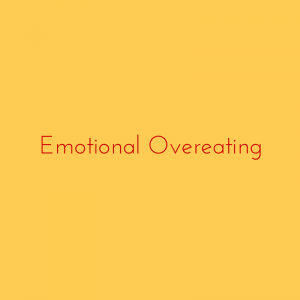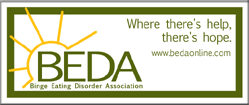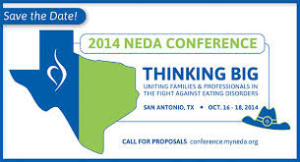Author Archives: Alison Pelz, LD, RD, CDE, LCSW
Medical System: Friend or Foe in Reducing Body Shame?
Aren’t we suppose to feel good about the medical care we receive? Don’t we want to feel empowered by our medical team to improve our health? And we certainly don’t want to feel ashamed of our bodies when we visit a medical provider. Unfortunately, body shame and frustration is what some feel when they leave their providers office.
It has been my clinical experience that people often feel shame about their weight when going to the doctor. I think this is particularly true for those with larger bodies. According to a 2012 Rudd Center for Food Policy and Obesity policy brief titled “Weight Bias: A Social Justice Issue” indicates that in a study of 2,449 overweight or obese women, 69% experienced weight bias by doctors. And 52% indicated that weight bias had occurred on more than one occasion. Rudd Center’s policy brief indicates that weight bias in medical practices is a deterrent for seeking medical and preventive care.
Weight Stigma Awareness week sponsored by the Binge Eating Disorder Association (BEDA) was last week . I was glad to see that BEDA had an information sheet (Toolkit ) on how to talk with your provider medical about weight.
Unfortunately, well meaning and highly qualified health professionals including doctors, can sometimes be a barrier to patients accessing medical care. Part of the work that I do with clients is to help them navigate the health care system in such a way that feels empowering vs. demoralizing.
Here are tips to help feel empowered, not shamed, about body weight at medical appointments:
Before going to the doctor take stalk in how you feel about your body. Do you feel as though your body weight is affecting your health? Do you believe that you have to be a certain size to be healthy? Have you experienced bullying from family or friends about your body? Are you comfortable in your body? Do you have a distorted body image? Getting clear about your own experience and beliefs about your body may make it easier to communicate with your healthcare team around body image.
Remember we are health care consumers. Just like we shop around for a new car-visit different dealerships, test drive different makes and models-we can shop around for medical providers. For example, if trying to find a new primary care doctor schedule an initial appointment with the sole purpose of assessing if the doctor is a good fit for you. Think of it like taking a car for a test drive.
Before visiting your doctor think about how you want the discussion of body weight to go. BEDA’s toolkit suggests encouraging your health care team to “focus on health vs. weight”. Imagine yourself saying something like,”I know body weight is one component of my health. I am here today to talk about how else I may improve my health, besides focusing on my weight.” Or, “I am looking for a new primary care doctor that I can collaborate with. My last doctor ridiculed me about my weight. How can we make that different in your office?” If you are not ready to have a discussion with your doctor about your body weight then state that.
Write down questions ahead of time. And if comfortable, bring a friend or family member along to the appointment.
Click here to read the toolkit from the BEDA.
Ditch the Diet
Q: I can lose weight on diets, but then I get off track. I gain even more weight back than I lost. This has happened several times. I am tired of this. What do recommend?
A: Weight cycling (losing/gaining of weight) is a common pattern seen with chronic dieters. It can leave dieters feeling frustrated and hopeless. And ultimately feeling like a failure. I believe that diets fail, not the people who follow them. Diets fail because they usually don’t give us all the tools to be successful. Diets are really good at telling us what to eat and what not to eat–setting food rules. Some diets can be good at telling us how much to eat. But, diets don’t usually teach us to monitor our internal cues for hunger and fullness, how to eat at restaurants or parties, how to deal with emotional eating or binge eating, how to be flexible with food, take into consideration our food preferences, how to feed our families, etc.
There are many studies to support that dieting works–for awhile–but there isn’t much data to show the effectiveness of dieting with long-term weight loss. The dieting industry makes billions of dollars promoting their diets, pills, plans, etc. Well meaning health care professionals encourage patients to diet, which can often add fuel to the fire. Studies also show that dieting can increase the risk of eating disorders.
So what is a dieter to do? I encourage a more holistic approach.
1. Take stock in why you want to lose weight. Make a list of all of the reasons why you want to lose weight-health (be specific), looks, increase self-confidence, moving around easier, etc. Body weight is part of all of these-health, looks, self-confidence-but not all of it. Let’s take health for example. There are many ways to improve health-physical activity, eating nutrient dense foods, getting enough rest, etc. I encourage people to focus on all areas in order to meet their health goals not just weight loss.
2. Assess your eating style and rule our an eating disorder. According the Binge Eating Disorder Association, 30-40% of people seeking commercial weight loss services in U.S. meet the criteria for Binge Eating Disorder the most common type of eating disorder. Click here for a free and confidential eating disorder assessment tool.
Here are some questions to help assess your eating style: Are you a grazer? How many meals do you eat per day? Do you eat while distracted (working, watching TV, on devices)? What type of food do you eat most often? What types of foods do you like best? How often to you go to the grocery store? How often do you eat out or away from home? Do you know when you are hungry and when you are full? Do you eat when not hungry?
Once familiar with your eating style, it makes it easier to target behaviors you want to change in order to meet your goals.
3. Mindful Eating. Mindful eating is eating when you are hungry and stopping when you are full, eating all types of food (not just diet foods), taking both health and pleasure when considering food choices and eating without distractions. Once you have become clear about why you want to lose weight, have become familiar with your eating style (and ruled out an eating disorder) then begin to practice mindful eating. Be patient with yourself, changing eating habits take time.
Are you feeding your feelings?
 Compulsive overeating, food addiction, binge eating, yo-yo dieting, disordered eating–what does it all mean. Finding clarity on what particular food problem you have helps inform what that best way to treat it. In my last few posts I have highlighted two great groups available in the Austin Area for those who struggle with emotional overeating eating. Today I am going to clarify what emotional overeating is.
Compulsive overeating, food addiction, binge eating, yo-yo dieting, disordered eating–what does it all mean. Finding clarity on what particular food problem you have helps inform what that best way to treat it. In my last few posts I have highlighted two great groups available in the Austin Area for those who struggle with emotional overeating eating. Today I am going to clarify what emotional overeating is.
Simply put emotional overeating is habitually eating in response to emotions–all kinds-happy emotions or distressing emotions-when not physically hungry. Often the assumption about emotional eating is that there is a marked stressful event (trigger) and then the eating occurs. For example, you get chewed out by your boss and then proceed to eat a bowl of candy to deal with feelings of shame, frustration and anger. Often emotional overeating is more subtle, occurring more covertly. And more often then not, there isn’t a clear trigger. Emotional overeating could look like when you are at work or studying and you find yourself snacking, though you are not hungry. Feelings associated with this situation could be boredom, frustration or fatigue. Evening time is common time when emotional eating can occur-fatigue or worry may be festering at this time (Perhaps feeling stressed by the incident with the boss that happened earlier in the day.).
The defining elements of emotional eating is habitually eating when not physically hungry in the presence of aroused emotions. Part of normal eating is eating when not hungry, but it crosses over into emotional overeating when it is the rule not the exception. Emotional eating is not a diagnosis per se, but can be a component of an eating disorder such as binge eating disorder or bulimia nervosa, etc. One doesn’t have to have an eating disorder to emotional overeat. But, emotional overeating can lead to feelings of helplessness, failure, shame, etc. Emotional overeating can lead to preoccupation with weight/shape and food. Emotional overeating can lead to unwanted weight gain, but not in all cases.
If you think you may struggle with emotional eating self-help books, groups and/or counseling can be helpful.
Weight Stigma Awareness Week
 It is coming September 22-26th, 2014…Weight Stigma Awareness week sponsored by The Binge Eating Disorder Association! According to the on-line Merriam-Webster dictionary stigma is defined as “a set of negative and often unfair beliefs that a society or group of people have about something”.
It is coming September 22-26th, 2014…Weight Stigma Awareness week sponsored by The Binge Eating Disorder Association! According to the on-line Merriam-Webster dictionary stigma is defined as “a set of negative and often unfair beliefs that a society or group of people have about something”.
Weight stigma is wide spread through our culture. It shows up as bullying, verbal assaults and exclusion to name a few. Weight prejeduce can arise in areas such as employment/occupation, education and health/mental health care.
Weight stigma often is internalized by individuals which can lead to shame, hopelessness, isolation, etc. Studies suggest that weight bias may actually INCREASE the likelihood of obesity, binge eating and staying obese. According to the Rudd Center for Food Policy and Obesity, family members are one of the biggest sources of weight bias. In one study of over 2400 overweight and obese women, 62% of the study participants reported that on multiple occasions they had been stigmatized by their families because of their body weight.
Ways to Reduce Weight Stigma
1. Get educated on the complexities and causes of obesity. It is not as easy as calories in and calories out.
2. Understand that improving ones health can include a multitude of things, such as eating a nutrient dense foods and exercising, not just being thin.
3. Challenge bias attitudes. Speak-up. Don’t just let gossip or criticism about someone’s body weight go unchallenged.
4. Treat people of all sizes with fairness.
5. Support media sources such as magazines, TV programs, blogs, etc. that focus on size acceptance vs. fat bashing.
6. Take stock in your attitude about your own body.
7. If you are a parent and you think your child may be experiencing weight bias go to the Rudd Center for Food Policy and Obesity. They have lots of good information about how to talk with your child about it.
The Binge Eating Disorder Association (BEDA) has lots of great on-line event during Weight Stigma Awareness week including featured bloggers, social media events and tool kits. To learn more click here.
Emotional Eating Group starting in September
In my last post I shared information about a free emotional eating support group. Today I am sharing another great resource for those who struggle with emotional overeating the Overcoming Mind Hunger group.
As you can guess by the title one of the main focuses of this group is to teach participates to eat in response to biological hunger (AKA stomach hunger) rather than eating in response to emotions (AKA mind hunger).


